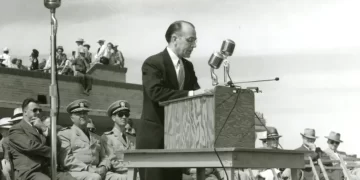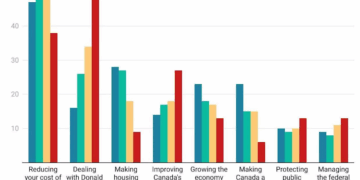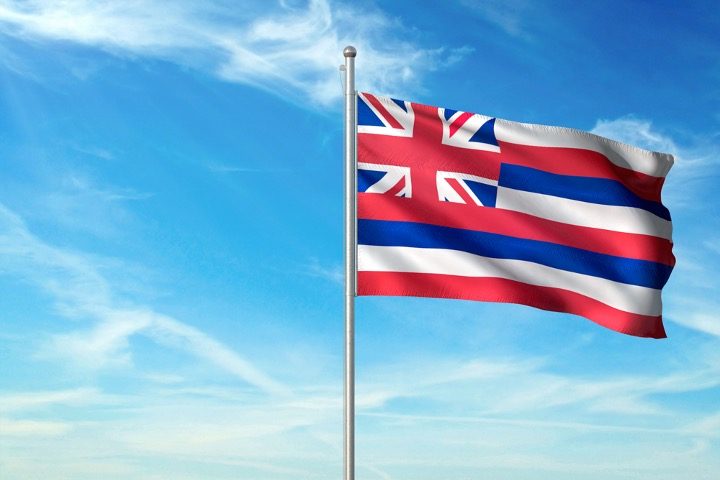
In a remarkable reinterpretation of the Second Amendment, the Supreme Court of the State of Hawaii ruled on Wednesday that an individual exercising rights guaranteed under that Amendment was guilty of violating the state’s laws supporting that right.
If that seems counter-intuitive to you, you’re not alone.
In its ruling the Supreme Court of the State of Hawaii noted that the wording of the Second Amendment to the Constitution of the United States is identical with the wording in Hawaii’s constitution:
Article I, section 17 of the Hawaiʻi Constitution mirrors the Second Amendment to the United States Constitution.
However, the high court in the Aloha State took great pains — 53 pages of them — to reinterpret it:
We read those words differently than the current United States Supreme Court. We hold that in Hawaiʻi there is no state constitutional right to carry a firearm in public.
In December 2017, the prosecuting attorney of the County of Maui charged Christopher Wilson of violating the state’s “place to keep” laws. He was found stargazing on what he learned later was private property. Police were called and Wilson told officers that he was armed. He was carrying a 22-caliber pistol with a 10-round magazine attached.
In May 2021 he moved to have his charges dismissed, using recent decisions by the Supreme Court — District of Columbia v. Heller and McDonald v. Chicago — to validate his defense.
The court denied his request.
He refiled in July 2022, right after the Supreme Court ruled in New York State Rifle & Pistol Association Inc. v. Bruen. He claimed that the Bruen ruling allowed him to carry the pistol, overriding Hawaii’s “place to keep” laws limiting him to carrying only in his place of business or his home.
The court prepared readers of its opinion for what was coming:
We hold that the text and purpose of the Hawaiʻi Constitution, and Hawaiʻi’s historical tradition of firearm regulation, do not support a constitutional right to carry deadly weapons in public.
We conclude that [the state’s “place to keep” laws] do not violate Wilson’s right to keep and bear arms under article I, section 17 of the Hawaiʻi Constitution and the Second Amendment to the United States Constitution.
Exact same words. Opposite conclusion.
Simply put, the Hawaii high court held that its interpretation of the state’s guarantee was a “collective right” guaranteed to the state and not an “individual right” guaranteed to its citizens.
It began:
When the two contain look-alike provisions, Hawaiʻi has chosen not to lockstep with the Supreme Court’s interpretation of the federal constitution.
Rather, this court frequently walks another way.
Long ago, the Hawaiʻi Supreme Court announced that an “opinion of the United States Supreme Court . . . is merely another source of authority, admittedly to be afforded respectful consideration, but which we are free to accept or reject in establishing the outer limits of protection afforded by . . . the Hawaiʻi Constitution.” …
That means this court, not the Supreme Court, drives interpretation of the Hawai’i Constitution.
The key question: “Does Hawai’i’s Constitution afford a personal right or a collective right to keep and bear arms?”
The answer, according to the lights illuminating the darkness, is simple:
Because the text of article I, section 17, its purpose, and Hawaiʻi’s historical tradition of weapons regulation support a collective, militia meaning, we hold that the Hawaiʻi Constitution does not afford a right to carry firearms in public places for self-defense….
In contrast, there are no words that mention a personal right to possess lethal weapons in public places for possible self-defense….
The Hawaiʻi Constitution leaves out an individual right to bear arms.
Our [state’s] framers had options. They could have worded the constitution to plainly secure an individual right to possess deadly weapons for self-defense.
But they didn’t.
They went on to challenge the Supreme Court of the United States in its ruling in Bruen:
We believe that if article I, section 17 meant to provide an individual right to carry deadly weapons in public for self defense, then it would say so….
Hawaiʻi chose to use civic-minded language. Article I, section 17 textually cements the right to bear arms to a well-regulated militia.
Its words confer a right to “keep and bear arms” only in the context of a “well-regulated militia.”
Article I, section 17 traces the language of the Second Amendment. Those words do not support a right to possess lethal weapons in public for possible self-defense….
We conclude that the authors and ratifiers of the Hawaiʻi Constitution imagined a collective right. Our understanding aligns with what the Second Amendment meant in 1950 when Hawaiʻi copied the federal constitution’s language. And in 1968 and 1978 when Hawaiʻi’s people kept those words.
Hawaii’s high court then took on the nation’s Supreme Court:
History is prone to misuse. In the Second Amendment cases, the [Supreme] Court distorts and cherry-picks historical evidence. It shrinks, alters, and discards historical facts that don’t fit….
Bruen unravels durable law. No longer are there the levels of scrutiny and public safety balancing tests long used by our nation’s courts to evaluate firearms laws. Instead, the Court ad-libs a “history-only” standard….
The Supreme Court makes state and federal courts use a fuzzy “history and traditions” test to evaluate laws designed to promote public safety.
It scraps the traditional techniques used by federal and state courts to review laws passed by the People to protect people.
And by turning the test into history and nothing else, it dismantles workable methods to interpret firearms laws.
All to advance a chosen interpretive modality.
Translation: The judges of Hawaii’s highest court directly accuse the majority of the judges on the Supreme Court of the United States of having an agenda, and then finding, twisting, misstating, and cobbling together bits and pieces of history and opinions to confirm that agenda.
The court accuses the Supreme Court of “time-traveling”:
Time-traveling to 1791 or 1868 to collar how a state regulates lethal weapons — per the Constitution’s democratic design — is a dangerous way to look at the federal constitution.
And “disabling” states’ power to protect its citizens:
The United States Supreme Court disables the states’ responsibility to protect public safety, reduce gun violence, and safeguard peaceful public movement.
A government by the people works. Hawaiʻi’s legislative branch has passed sensible firearms laws. And Hawaiʻi’s executive branch has enforced those laws.
Hawaii’s high court can’t end its reinterpretation without voicing its continuing unhappiness over how the United States illegally took over the islands more than a hundred years ago:
In 1893, [an] armed group forcibly deposed Queen Liliʻuokalani, who was crowned after King Kalākaua’s death in 1891.
A so-called Committee of Safety, a group of professionals and businessmen, with the active assistance of John Stevens, the United States Minister to Hawaiʻi, acting with the United States Armed Forces, replaced the monarchy with a provisional government.
For which Congress apologized:
100 years later, in 1993, Congress enacted a joint resolution “to acknowledge the historic significance of the illegal overthrow of the Kingdom of Hawaiʻi” and apologize to Native Hawaiians.
The ruling is all in the “Aloha Spirit,” according to the Hawaii Supreme Court: “In Hawai’i, the Aloha Spirit inspires constitutional interpretation [but] it clashes with a federally mandated lifestyle that lets citizens walk around with deadly weapons during day-to-day activities.”
What is that “Aloha Spirit?” One definition, provided by the Confetti Travel Café, states:
The Aloha Spirit is even considered a state “law.” This is not in any judicial sense; you won’t get arrested for breach of “aloha.” But it serves as a reminder for government representatives of how best to perform their duties.
Citizens should be regarded with the utmost respect and care as per the “law” of “aloha.”
According to that “spirit,” the highest court in the islands declared:
There is no individual right to keep and bear arms under article I, section 17. So there is no constitutional right to carry a firearm in public for possible self-defense.
We hold that HRS § 134-25(a) and § 134-27(a) [the state’s “place to keep” laws] do not violate Wilson’s rights under the Hawaiʻi Constitution.
The majority of judges in the present Supreme Court of the United States isn’t likely to look kindly on this ruling from The Aloha State. An appeal is expected.

































 Reaction & Commentary
Reaction & Commentary















